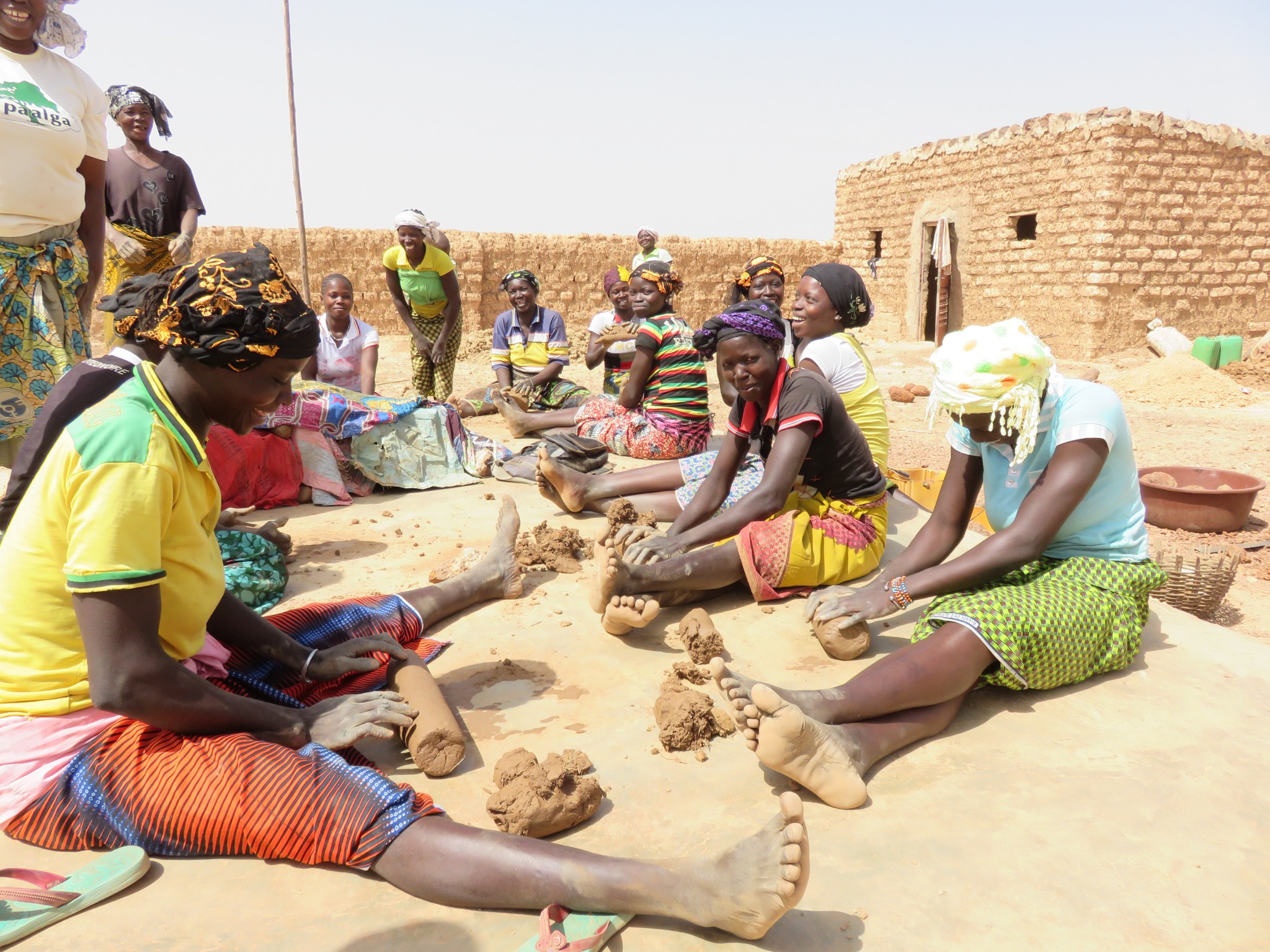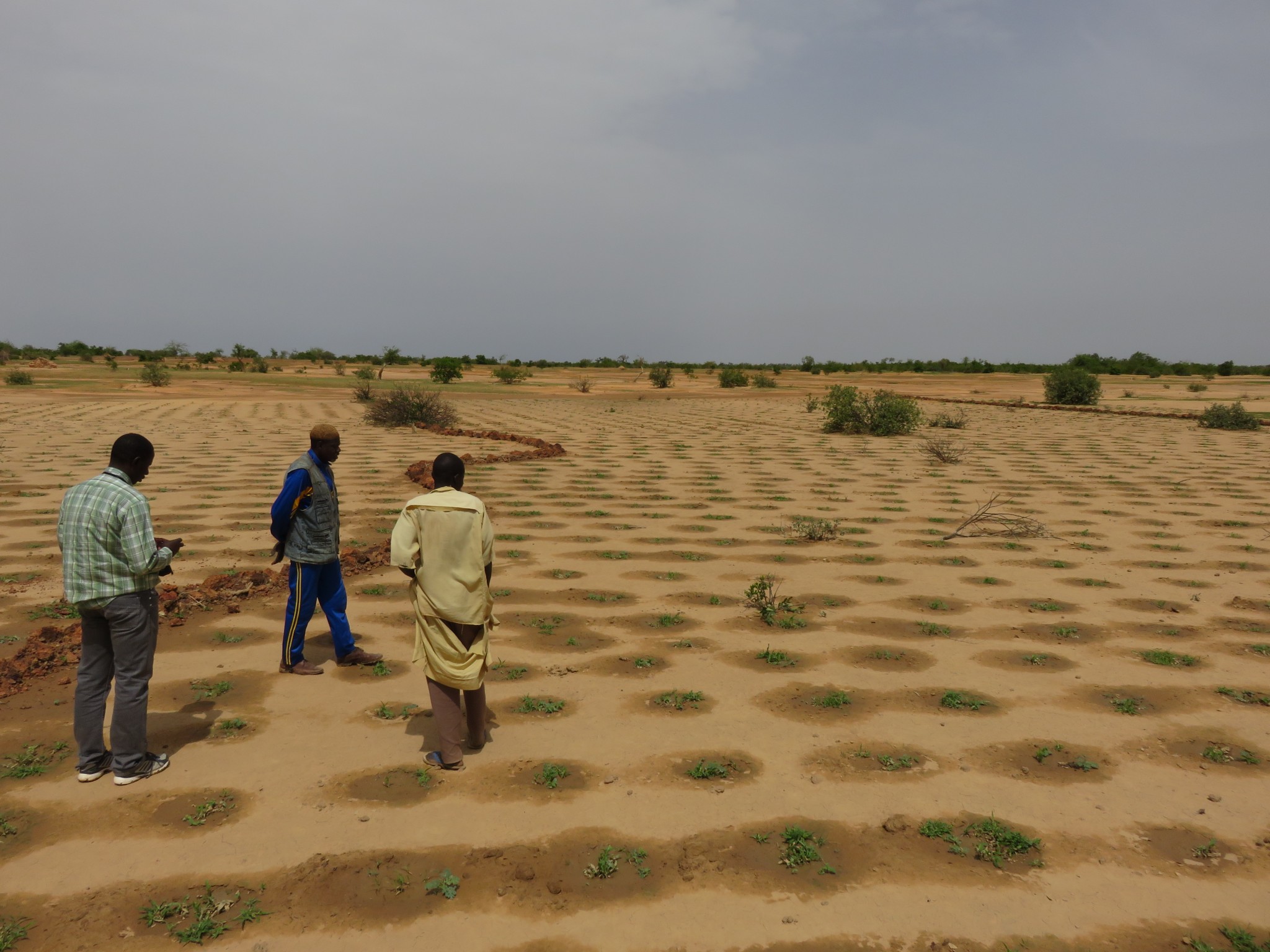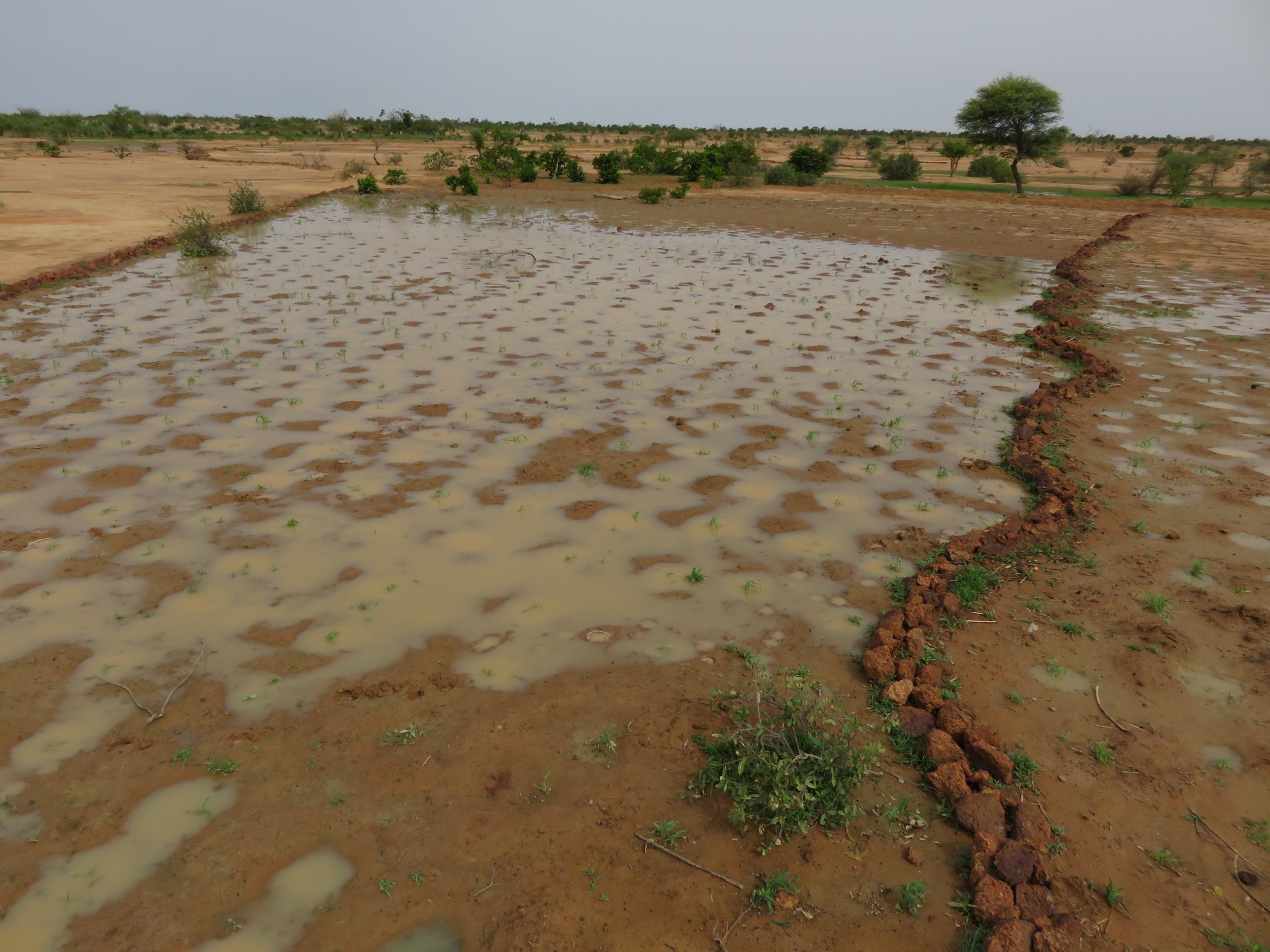In the Sahel region, more than anywhere else, climate change is a harsh reality for local populations. In the provinces of Bam and Lorum, in Nothern Burkina Faso, the desert is slowly encroaching on lands where trees used to grow. In these rural areas where wood is the main source of energy for cooking, inhabitants have no choice but to cut down trees. In addition, desertification and degraded land constrain villagers to clear forests or let their cattle graze freely to be able to feed their families and earn a living.
To counter this trend, the Livelihoods fund is supporting an efficient cookstoves and sustainable agricultural practices project. The project has two goals: firstly, to reduce wood consumption and hence decrease deforestation, and secondly to restore degraded land with agroforestry techniques which increase yields and resilience to droughts. The project, which will impact 150,000 people, will be supported by the Livelihoods fund over a period of 10 years. It is co-financed by the French Development Agency (AFD) and implemented on the ground by the local NGO tiipaalga, with the help of SOS Sahel, an NGO operating in the Sahel region, and the CIRAD, an international research centre.
The strength of this project is in scaling up simple and affordable techniques which are adapted to local conditions. For example, efficient cookstoves are not imported or bought; they are built by women themselves in “banco”, a mixture of soil from termite mounds, straw and manure. As a result, there is no financial barrier for women, a real sense of ownership for local inhabitants and effective use in villages. The same principles are being applied to the agroforestry component in order to replicate this model from one village to another.
Another distinguishing feature of this model is that it brings together a private investment fund, the Livelihoods fund, and a public development institution, AFD, in a results-based financial model. The Livelihoods fund provides upfront financing to tiipaalga for implementation and ongoing maintenance of the project. The fund will progressively receive a return on investment in the form of carbon credits. AFD supports the project through a grant which will partly be based on the results generated by the project.
Women play the leading role
9:00 a.m: village of Guibaré, at two hours’ drive North from Ouagadougou. Antonie, a trainer with tiipaalga, prepares the training session with 10 women leaders of the village. Antonie will train them to become instructors. About fifty villagers observe them with curiosity. The women leaders tell Antonie how far they had to go to collect the necessary elements, especially water, for building the efficient cookstoves. In May, nearly all the springs are dry and the water available near villages is primarily used for cattle. Antonie says that they are investing in the future: thanks to the efficient cookstoves that they will build, they are going to halve the time collecting wood and cooking.
Furthermore, as the fire will be confined inside the stove, they will be more protected from toxic smoke and the risk of burns. The training begins, punctuated by laughter. A dense crowd has now gathered around the women.

“A family uses at least 3 tons of wood each year with a traditional cookstove composed of 3 stones on the ground. This is a huge quantity in a country which doesn’t have any forests”, says Franciska Kaguembega, president of tiipaalga (in the Moré language spoken in some parts of Burkina Faso, “tiipaalga” means “new tree”). The efficient cookstoves will reduce wood consumption by 60%. They will cost nothing but time as women will build them with their own hands out of free and natural material: soil from termite mounds, straw, manure and water. Building a stove to very strict specifications, which reduces wood consumption and increases cooking efficiency, using local materials and no tools, is a real challenge. tiipaalga has managed to transform complex concepts into simple messages: the cooking pot will be placed a thumb’s height above the ground, the stove’s opening will be as large as a can of tomatoes, the distance between the pot and the rim of the stove will be a finger’s width.
Within a few months, the Livelihoods project has equipped more than 11,000 families with efficient cookstoves. It aims at equipping 30,000 families, which will avoid an equivalent of 4 million trees being cut down, and reduce emissions of CO2 by 700,000 tons over 10 years.
Simple agricultural practices to restore lands and ensure food safety for local communities
In Burkina Faso, it rains only 3 to 4 months per year in average. This is a real challenge for farming, on which 80% of the inhabitants depend for their livelihoods. Since the beginning of 2016, with the support of AFD, the Livelihoods project offers training to farmers in 30 villages to move to sustainable practices. These simple, affordable and efficient practices aim at restoring land degraded by droughts, overgrazing and erosion. Water is the major challenge. It is both the long-awaited miracle and a terrible natural force – when torrential rains destroy crops and wash away the soil after long periods of drought.


Now, stone rows follow the contour lines of the fields, stretching to the horizon. These lines of stones slow down the violent run-off of rain water during downpours, so it has time to penetrate the soil, thus retaining the nutrients in place. All around, there are hundreds of small pits in the fields, a Burkina Faso farming technique known as Zaï. This practice allows the little available water to concentrate in these depressions where the farmers place the seedlings and compost. And gradually, trees are reappearing here and there across the fields. Farmers are learning to recognize the varieties which will bring back fertility to the soil or produce valuable fruits, and to protect the young trees against grazing cattle.
Further in the distance is a building playing the role of a ‘bank vault’. This is where farmers store their crops just after harvest in exchange for a payment of 80% of the market price. Six months later, farmers can take back their produce, when the demand is high, either for their own consumption or sale at a better price, paying back the initial amount with interest. This “warrantage” system has been developed by SOS Sahel. It makes farmers less vulnerable to market fluctuations and seasonality. Other practices will be implemented within the project to enable farmers to increase their yields, without degrading the ecosystem, in order to improve their livelihoods.
“When farmers have access to simple and affordable practices and knowledge, they can step out of this vicious circle where agriculture is at the expense of the environment. By bringing together the private sector, the public sector and NGOs in efficient coalitions, we can have a greater impact”, explains Bernard Giraud, president of Livelihoods Venture.
A coalition of public and private partners
A particular feature of this project is the complementarity between the different partners. The Livelihoods fund is an investment fund which provides upfront financing to project developers for the implementation of projects in the field. In return for the risk it takes, the fund receives carbon credits over a period of 10 years. The carbon credits are then distributed to private companies which have invested in the fund and they use them to offset some of the emissions they cannot avoid. This investment model is made possible through the long-term commitment of the investors who rely on the fund to generate carbon credits with high social value for them.
AFD brings the necessary financing, in the form of a grant, to implement the sustainable agricultural practices component. AFD’s grant will be paid in part according to the results generated by the project. “AFD participates in the dynamic created by the private sector with the efficient cooking stoves project by supporting the implementation of sustainable agricultural practices”, says Christophe Du Castel from AFD.
tiipaalga, a grassroots NGO with an effective presence in the field and rigorous project management, creates local momentum by empowering villagers, enabling a rapid roll-out of the project. SOS Sahel, who has a long track-record in the Sahel region, brings its expertise on “warrantage” to help farmers in the effective sale of their local produce.
Finally, the impact of the project will be measured by CIRAD who will develop tools to enable farmers to follow their progress themselves. These tools and results will be made available to all organizations wishing to use them in the Sahel or elsewhere.
Challenges ahead for the Sahel
Experts expect temperatures in the Sahel to increase by 2 degrees in the next 20 years, and by 3 to 5 degrees by 2050. Such a rise would cut crop yields by 15 to 40% – a disaster in one of the poorest regions in the world, where the population doubles every twenty years. Given these challenges, there is an urgent need to deploy new solutions built on the skills and resources of the various actors and to give priority to results. The Livelihoods project is an attempt to achieve this. Many more projects are necessary.


